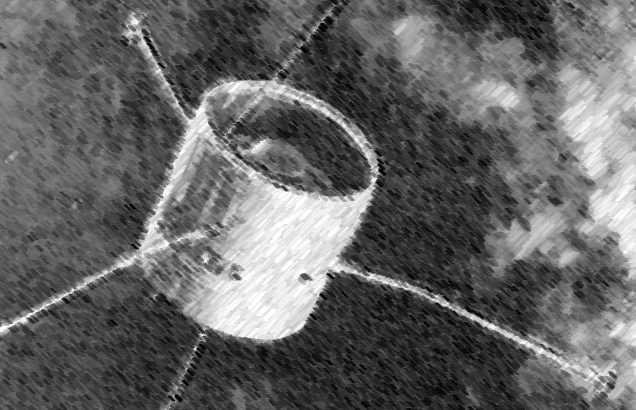A look at the role of football in the far future of 17776 from an extremely unique perspective…
Sometimes surprise is everything. If you have any interest in social science fiction – in particular how society adapts to change, or the nature of play, then just give 17776 a try, preferably spacing the chapters out and on a device that can scroll pages easily. 1
If you need more convincing, then light spoilers ahead.
Being told that an American Football website is running a sf story about the future of football, and actually experiencing it are two different things. Initially, this looks like an experiment in playing with form, with a scrolling calendar gag and a conversation between space probes that have bootstrapped themselves to consciousness. As it goes on however, 17776 wears its heart on its sleeve – it is a passionate defense of play as being a fundamental part of what makes us human.
The form, rather than being a distraction, is key to 17776’s success. Indeed without the multimedia trappings the story is almost classical in nature- a tale of gods looking down on the world and trying to understand humanity. Through its somewhat elliptical structure, and extremely judicious dolling out of the setting details, it puts the consequences before the causes: a couple of disjointed, often comical vignette’s about a range of seemingly futile ‘football’ games with bizarre rules in a world that otherwise looks almost identical to todays (plus or minus some global warming), is re-contextualised as a natural seeming outcome of a few radical changes to the world, and then further games emphasise certain themes. This combines with the extremely clear philosophical principles,2 to make an extremely effective story.
This is not to say 17776 is perfect. As much as I praised the form, some of the more experimental features detract from the story. In particular the initial calendar gag, where the reader has to scroll through a huge number of calendar pages is extremely frustrating, and a page which relies on two dimensional scrolling is awkward with no purpose. There are also a number of animated maps and diagrams scattered through the chapters, and they are workmanlike in quality at best, distracting at worst. The biggest problem however is a case of diminishing returns, on their own terms each of the games is interesting, but together they start to feel repetitive and unnecessary. Fortunately the whole work is relatively short, and I suspect that it would be improved by judiciously dolling out the chapters rather than binging them at once.
17776 is an extremely pleasant surprise for science fiction and/or football fans.
